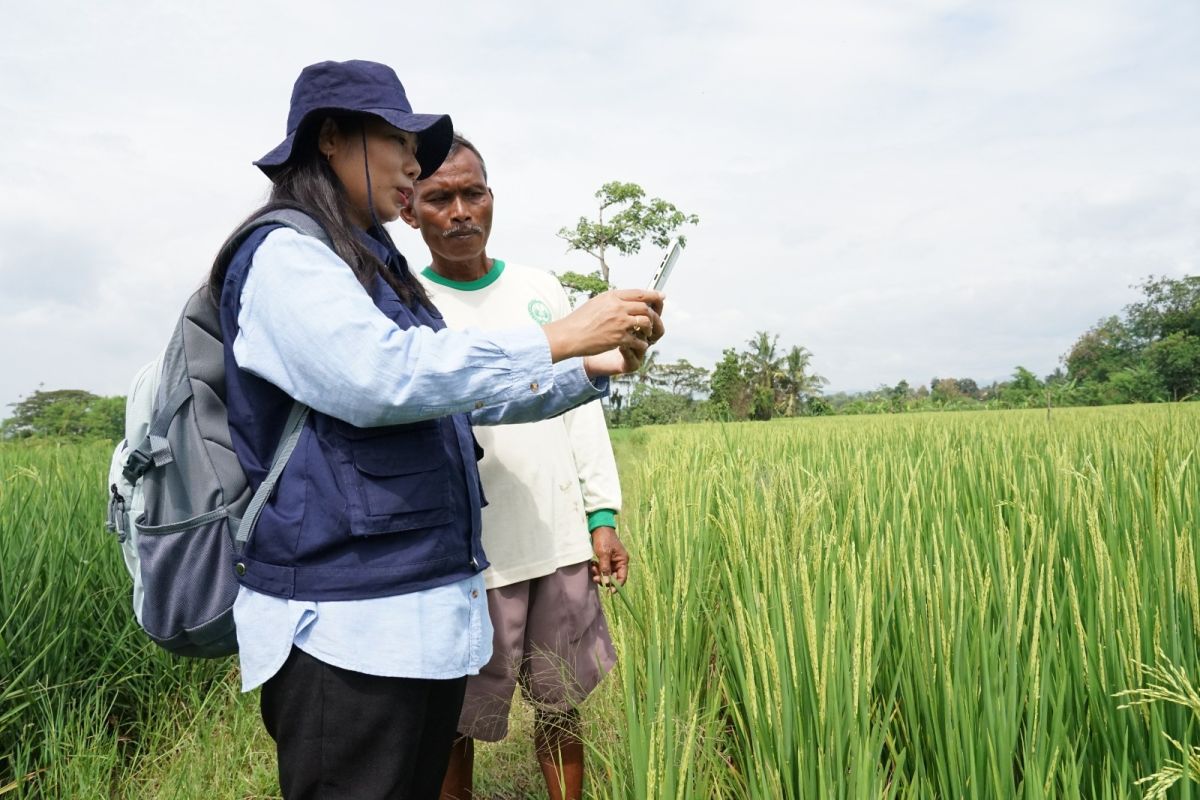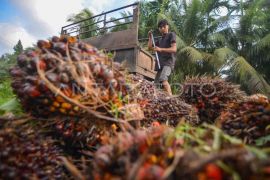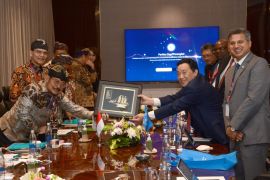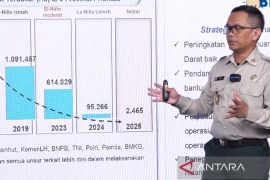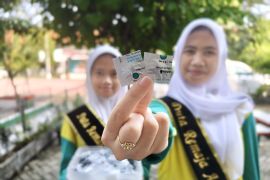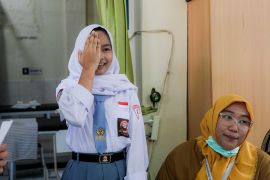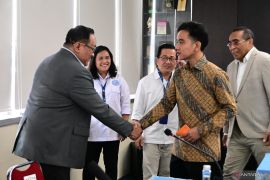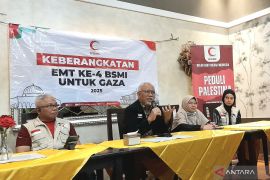Digitalization is the future, and the future is now to empower women, men, and youth in agriculture.Jakarta (ANTARA) - The Center of Agricultural Data and System Information (CADIS) of the Agriculture Ministry, in collaboration with the United Nations' Food and Agriculture Organization (FAO), has launched an agriculture digitalization strategy called the “e-Agriculture National Strategy.”
The strategy, which has been launched for the first time, aims to harness data and information resources in agriculture for the benefit of smallholders, according to a statement received from FAO Indonesia here on Tuesday.
"It is very important to note that the Ministry of Agriculture’s (MoA’s) cooperation with FAO has accelerated agricultural development in the country," secretary general of the ministry, Kasdi Soebagyono, said.
According to the FAO, Indonesia is the fourth most populated country in the world and a major producer of agricultural products. With 45 percent of the population living in rural areas, more than 90 percent of people working in the agriculture sector are smallholder farmers.
Agricultural farms take up 32 percent of the total land area of the country and farm production accounts for 14 percent of the national gross domestic product (GDP), the FAO stated.
"Yet agricultural production faces several major challenges. The cost of agricultural production is quite high, while agriculture remains a highly labor-intensive sector. Smallholder farmers always work the hardest, but acquire the least benefit in the food systems activities," it added.
Therefore, to address those challenges and take advantage of emerging digital opportunities, the MoA, in cooperation with the FAO, has launched the “e-Agriculture National Strategy.”
"I appreciate the ‘e-Agriculture National Strategy’ that can provide instrument facilitation that is urgently needed by the MoA to accelerate our agriculture development in the upstream, on farm, post-harvest, for the farmers to strengthen their position agricultural industry," Soebagyono said at an event held to launch the strategy on Tuesday in Yogyakarta.
Data on land area under cultivation, productivity, marketing channels, commodity prices, diversification of consumption, and food safety are some examples of data related to agriculture production that are needed by policy makers, he informed.
Early Warning System (EWS) data that can reduce the impact of specific disasters is also urgently needed.
Among other things, the “e-Agriculture National Strategy” states that by 2027, Indonesia will have an integrated database on farmlands and farmers, provide digital early warning for disasters that threaten agriculture production, and run systems for agriculture data collection, extraction, and analysis.
FAO representative for Indonesia and Timor Leste, Rajendra Aryal, said that the food system transformation in Indonesia must start with digitizing agriculture.
"The digitalization offers reliable data as a parameter for decision makers to create a well-targeted policy. We need to compile real-time data for more transparent information to ease the farmers to penetrate the market," he said.
He further said that agriculture digitalization is also a way to attract young people to join the agriculture business.
"Digitalization is the future, and the future is now to empower women, men, and youth in agriculture," he added.
One of the core e-solutions to create a reliable database for decision makers is the Data Collection Platform (DCP) that can collect any agriculture data from various inputs, key informant persons, sensors, and other systems, according to the FAO.
"Once the farmers’ data is available, the implementation of other e-solutions is relatively easy to follow and integrate. E-solution implementation for each area will be selective, based on the area’s needs, infrastructure availability, culture/local wisdom, and gradual," Rajendra added.
Related news: Govt seeks to build plantation resilience through palm revitalization
Related news: Special care for plants will help yield best production: Minister
Reporter: Yuni Arisandy Sinaga
Editor: Anton Santoso
Copyright © ANTARA 2023
